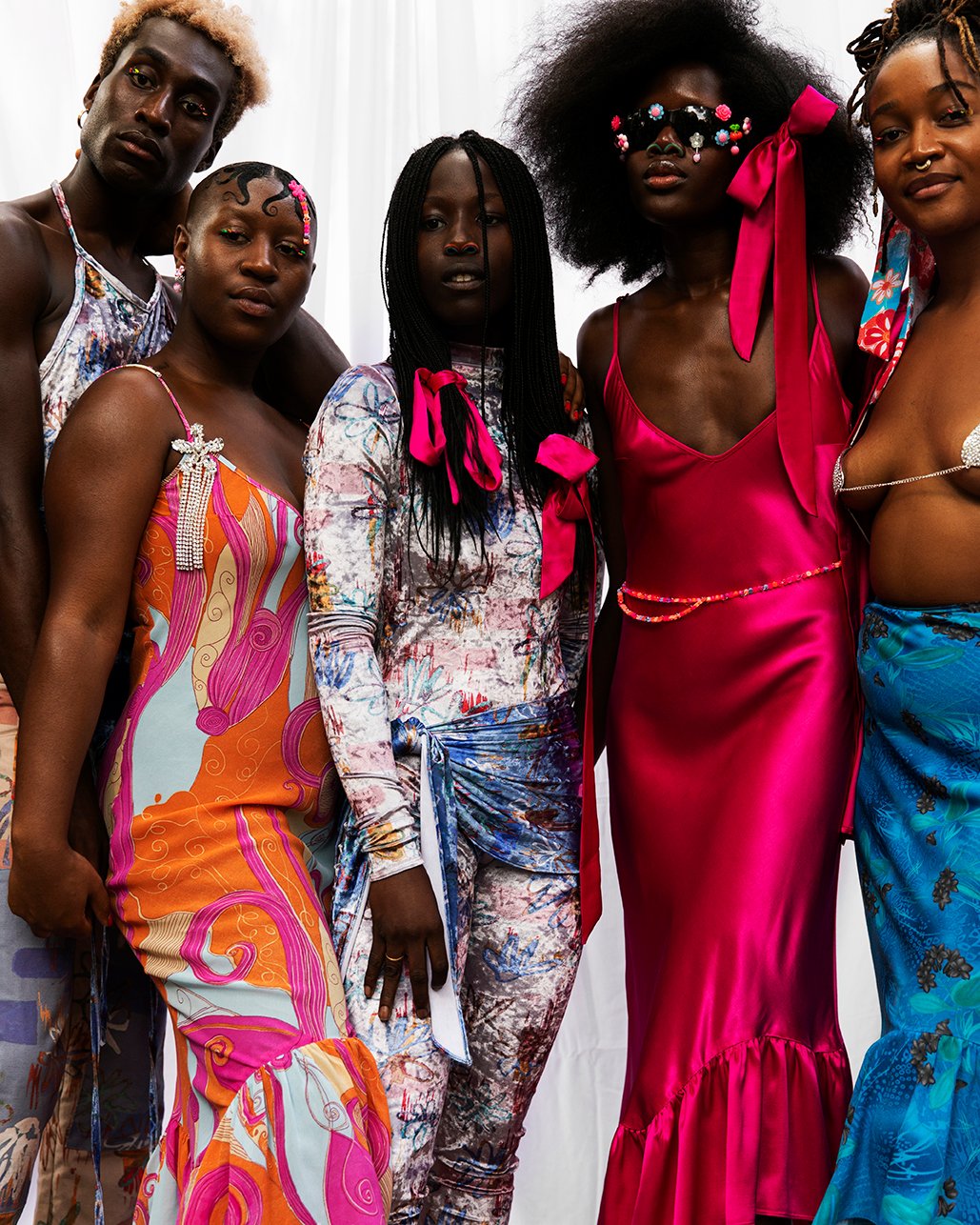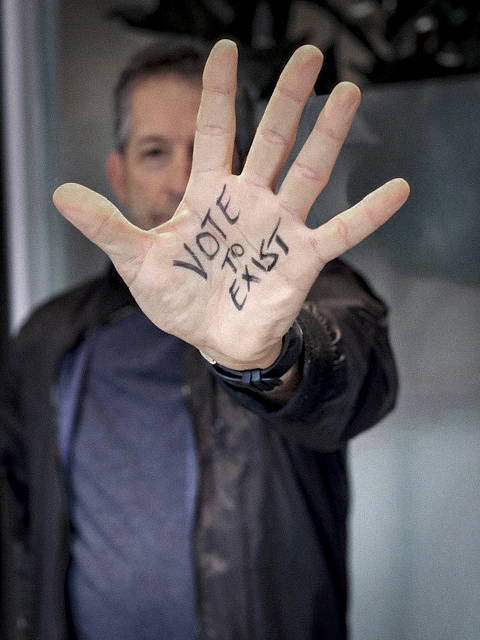Sustainability & New York Fashion Week Decoded
October 8, 2020
Marc Karimzadeh


Earlier today, the CFDA, in partnership with Boston Consulting Group, released the Sustainability by Design: Rethinking New York Fashion Week, a focused study on the environmental impact of NYFW and a playbook to guide the industry towards positive change. In honor of this important work, we talked to CFDA Director of Education and Sustainable Strategies about the study and the future of fashion shows with an eye to the environment.
The work on the focused study started before the pandemic. Tell us what the impetus for it was?
Our work within Sustainability Initiatives is always intended to be responsive to industry and stakeholder needs – and is largely education-, resource-, and engagement-centered with goal of being as meaningful, relevant, and purposeful as possible.
We initially framed this research, launched in March, recognizing the industry’s heightened level of inquiry, and rising urgency for climate crisis awareness and action. It was also apparent that while the impact of fashion week is significant, it can be difficult for individuals to navigate complex choice-making and to measure or quantify impact dimensions.
Aiming to build upon existing Sustainability Resources, the work was envisioned as two parts: a comprehensive NYFW Impact Report, examining ecosystem impact areas such as production logistics, transportation, waste etc. using simplified metrics, followed by a Playbook containing phased recommendations and actionable priorities, including need to know guidelines specifically for event, producers, designers, and key NYFW actors.
As a customizable blueprint, aligned to the Sustainable Development Goals, the Playbook was envisioned to be easy to understand and to guide users towards bespoke positive change opportunities through educated choice-making. We hoped it would provide a roadmap to flexible future thinking approaches and innovation opportunities.
The CFDA was very fortunate to be able to partner again with BCG. We built upon both the CFDA 2016 Future of NYFW report findings and their global leadership within sustainable fashion research including the Pulse Report series created and launched at the Copenhagen Fashion Summit, as well as their recent report in partnership with the SAC and Higg Weaving a Better Future: Rebuilding a More Sustainable Fashion Industry After COVID-19, which launched just after the beginning of the pandemic.
How did the pandemic change the nature of the project, and why, at a time of increasing virtual presentations, did you feel this is now more important than ever?
While our world has irrevocably changed and we continue to apply strength and resiliency to continue on the difficult social, economic, and environmental journey 2020 has brought us, we remained steadfast within this work. Our current crises do not diminish the planetary emergency we are fast approaching – and in many ways the pandemic, alongside needed reckoning for social justice, amplifies the importance of sustainability. Hopefully, this can be a moment of true transformation and accelerated momentum – a time of true change and a time when purpose is added to the pillars of our work.
Looking to the long view, we chose to release this work now at the conclusion of the first largely digital fashion month, and recent launch of CFDA’s RUNWAY360 platform. The study integrates recommendations from stakeholders and the steering committee that are fundamentally evergreen, while also calibrating insights to current contexts including the current shift to virtual presentations. When it is safe to do so, we hope that – whether NYFW returns to events six, 12 or 18 months from now – this time of digital can serve as a veritable proof of concept for impact reduction tied to transportation and that ultimately hybrid forms of presentation will become part of a new brand normal.
In the coming weeks, we intend to develop a series of micro-engagements centered on education and collaboration with Boston Consulting Group with support of the United Nations Office for Partnerships and Conscious Fashion Campaign who steward the Sustainable Development Goals. The series, to be hosted virtually beginning in November leading up to NYFW next February, will be designed to guide fashion week stakeholders.
The virtual series will focus on education and active engagement and include introduction and overview of all materials. Using key findings and playbook recommendations as a springboard a key goal of engagement will be to foster sharing of information, and facilitate added/expanded guidelines and “best practices.”
Timing of series will align to NYFW planning including application cycle for calendar and RUNWAY360 participation. This timing optimizes tactical thinking and continued momentum. Acknowledging that the guidelines in the playbook and identified areas of opportunity at time of release represent a thought starting point- the engagement phase will allow for further integration of COVID realities, adoption of digital and hybrid formats etc.; and dialogue for prioritization.
Target outcomes of engagement will be co-defined and may include shared/open access resources, micro- case studies, and more.
Name the three key takeaways from the study.
Education and collaboration continue to be two of our most valuable tools in transforming today’s challenges into tomorrow’s innovation opportunities. The Playbook for Positive Change includes recommendations that the CFDA plans to implement.
Despite our commitments, climate change and the need for aggressive climate action is not an option, it is an imperative! At this moment, there are jarring reminders of climate change and the crisis that is upon us – with extreme weather across regions of unprecedented severity and fires that continue to ravage California and the West Coast.
Sustainability is not a compromise. When informed, making positively impactful choices can be core to a brand’s value proposition, and be part of design centered strategies that apply creativity and ingenuity – in unique ways.
Which designers, in your mind, are leading the way in terms of sustainability at New York Fashion Week, and how?
CFDA member brands such as Gabriela Hearst and Zero + Maria Cornejo have stewarded vision across both the design and business aspects of their brands and led so many others to examine their best and not so best practices. Their approaches are unique and while sustainable, place design at the center of every element of their collection including presentation. Collina Strada, Oak + Acorn, Studio 189 have also consistently led in placing sustainability first including presentation. With the launch of RUNWAY360, it was very inspiring to see designers of all phases – brands large and small – experimenting with a range of virtual forms of presentation, translating narratives across collection, product, image, film, AI and other forms of technology.
Can the change to a carbon free fashion week happen immediately or do you think this is a step by step process that takes time?
I believe all change is incremental – education, followed by behavioral change can have great impact over time- especially when there is a tipping point reached that help to galvanize others to choose more mindfully, safely, consciously. While not a permanent – solution – for brands that can do so – carbon buybacks and offset programs can be part of an effective strategy.
I am most hopeful about the role of technology – and the opportunity for a new economy – that includes renewable safe energy sources- and how that may change the transportation industry including ground and air travel. It is also encouraging to see the preliminary commitments of the sector – which is responsible for so much impact.
It is also inspiring to see the proliferation of material innovation- while not yet to market – the possibility that carbon can be extracted from the air and made into fabric or that a textile can be made from methane – is truly remarkable and an example of the type of regenerative design we need for there to be true planetary healing.
How do you expect fashion week to look five years from now?
I imagine and hope that parallel to shifts in our culture and how we work, digital and phygital, will be permanently integrated into fashion weeks for years to come.
I also wonder if second to wellness and building of a new truly equitable fashion system there will be a need to limit our isolation and desire to increase real life, in person social connection.
What if one day, IRL experiences including responsible travel and social gatherings are the new luxury?
Pictured: Looks from Collina Strada.
Previous

Kenneth Cole Says: Vote to Exist
